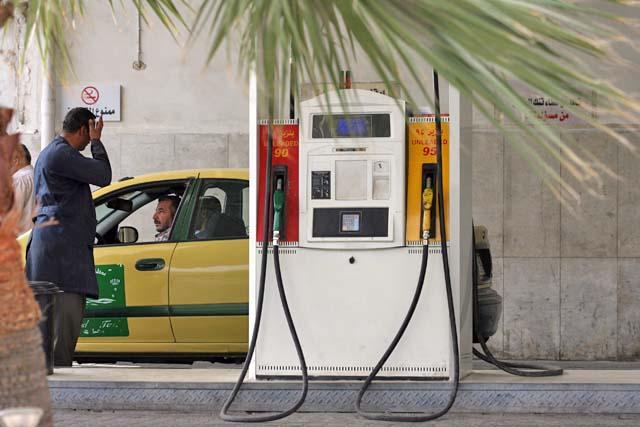You are here
Consumers stock up on fuel ahead of ‘Huda’
By Dana Al Emam - Jan 05,2015 - Last updated at Jan 05,2015
AMMAN — The demand for oil derivatives has skyrocketed as consumers prepare to stay warm during the impending snowstorm, benefiting from the recent drop in fuel prices, a sector leader said Monday.
“The demand on oil derivatives has nearly tripled over the past few days, reaching up to 27,000 tonnes daily for the four fuel products,” Gas Station Owners Association (GSOA) President Fahed Al Fayez told The Jordan Times over the phone.
Fayez said the highest demand was for diesel, followed by 90-octane petrol, and kerosene, while demand for 95-octane gas was the least.
He added that the daily demand for gas cylinders, used for both cooking and heating, has also increased since the beginning of 2015, amounting to 180,000 units on some days.
“Maximum daily production capacities are up to 30,000 tonnes of fuel products and 210,000 gas cylinders,” the GSOA president said, adding that working hours and the Jordan Petroleum Refinery Company’s tanker fleet does not allow for the fast transportation of fuel.
The average consumption of the four main fuel products “does not exceed 10,000 tonnes daily”, Fayez added.
“The last week of 2014 witnessed a decrease in demand as customers were waiting for fuel prices to drop to save money,” he said, adding that the demand increased gradually starting from the first day of this year.
Under the new price list, the 12-kilogramme cooking gas cylinder is now sold at JD8.75, down from JD10.
One litre of unleaded 90-octane gasoline is sold at JD0.59, down from JD0.690, while 95-octane costs JD0.735, down from JD0.835 per litre.
Diesel and kerosene are now priced at JD0.46 per litre, down from JD0.545.
Stressing the availability of oil derivatives during the expected snowstorm, Fayez noted that some gas stations in densely populated areas ran out of fuel due to the “intense” demand, while others exhausted up to 95 per cent of their reserves.
He warned against incorrectly storing fuel products, which could pose a threat to people’s lives and properties.
“We strongly encourage the public to get rid of this negative culture, as there is no reason to fear a shortage in fuel supply,” he concluded.
Related Articles
AMMAN — Prices of oil derivatives for December are expected to drop by 3 to 4.5 per cent, Gas Stations Owners Association (GSOA) President F
AMMAN — The government on Saturday decided to keep the prices of fuel derivatives unchanged in November. The decision, issued by Minist
Fuel prices are expected to go down by 2 or 2.5 per cent next month, Gas Stations Owners Association (GSOA) President Fahed Al Fayez said on Monday.

















